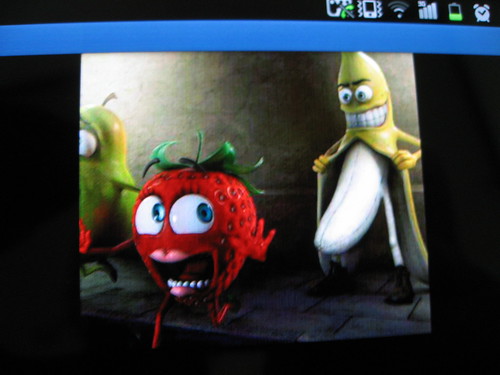Our son was born in the Year of the Tiger, which is a Chinese zodiac thing people here still find important, and apparently it was a "White Tiger" year. So while the "White Tigers" might sound like a resistance group set up by foreigners* in the Haeundae district of Busan**, the term actually refers to the multitude of 'white tiger babies' born during that Chinese year, or 'lunar year' as the Koreans prefer to call it for some reason.
Tigers are important in Korea as they are seen as a symbol of strength (whereas being white is important in cosmetic adverts and hagwon teacher recruitment), so it is believed that white tiger babies will become wealthy and powerful as they are born with an extraordinary amount of potential, not like all those mediocre babies from lesser years you have to subconsciously write-off from birth. The upshot of this is that everybody who could had babies that year, and now two years later there are too many babies and not enough nursery places.
So by the time we realised we had to find a nursery place after all, the nearest place we could apparently find - after single-handedly boosting Korea Telecom's profits by 10% - was in somewhere called Pyongyang, and it seems there are no direct buses. My wife then resigned herself to another year of hanging around with our son in 'kids cafés', which are a form of disguised nursery which distracts you with food or drink you have to buy, while your child disappears and gets into trouble.
Then a miracle happened. My wife found a nursery which had 30 free places, which admittedly is slightly suspicious given the white tiger glut. It was beneath some kind of church. It was probably run by some kind of Christians. I was still working part-time so I decided to go the first day to make sure it wasn't actually a cult; I grew up a Catholic so I have a lot of experience in spotting them.
The nursery people were pleasant enough while not being suspiciously nice, there were some prayers on the wall and they said Grace before eating, but there were no models of crucified men hanging from the walls or fairy stories about a bad man with horns who knew what you were doing and probably made government policy. I concluded they were probably mostly harmless.
If the group did have a cult-like quality, it transpired to be in their attitude to the English language. After he'd been at the nursery for a couple of weeks, my wife was asked to "speak more Korean" to our son at home because the staff felt he was lagging behind other children.
From what I've read on the subject of bringing up children in a bilingual household, research suggests that it's entirely normal for children to initially lag behind in terms of language development because they have two vocabularies and sets of grammar rules to learn rather than one. It's logical enough.
I think everyone recognises that this situation is far from ideal, but it is the reality of your circumstances unless you want to take the radical step of only teaching your multicultural child one language and one culture. I have known of people who have done this – both in Korea and in England and I wouldn't advocate it in either country, but I would particularly question the approach here given that in the current cultural environment you are not really going to be accepted as a Korean if you have 'mixed blood' (or indeed, if you don't have any Korean blood and become a Korean citizen).
As I see it, the road ahead is potentially littered with this kind of attitude though, because in truth, the road behind us already has been. In the matter of the nurture or nature question, I have to say my attitude has been shaped by nurture. Bringing up a child in a multicultural family in Korea doesn't on the face of it have to be a constant battle, but somehow it regularly turns into one as people associate undesirable traits with 'bad blood' and try to force you and your child into being as completely Korean as possible, without seeing the irony in the fact that if you were they still wouldn't accept you for it. And this is the fundamental paradox of living here.
* I understand – not that I would know – that the local resistance actually goes by the name 'Busan Alien Residents Front' or BARF, and it is vaguely affiliated the the Seoul-based 'Resident Alien Liberation Front' or RALF – Korea's oldest foreign-based resistance movement which dates back to 1994.
** I use the "Haeundae district of Busan" here for simplicity – many here are increasingly of the belief that Busan is, in fact, a district of Haeundae.
